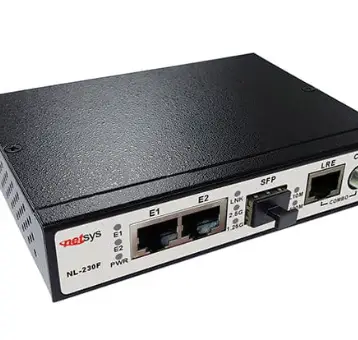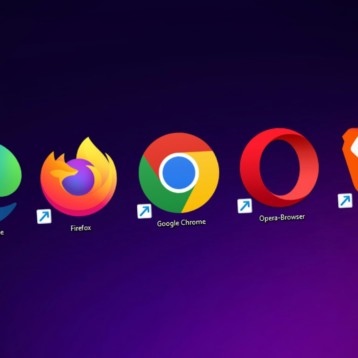
If you’re looking to hide your IP address and unblock restricted sites, you must’ve come across terms like VPNs and proxies. While both will connect your device to a remote server, they are fundamentally different. In this VPN vs. proxy guide, we’ll discuss when you may want to use each and why VPNs are a better option than proxies. Let’s get started:
What is a proxy?
Basically, a proxy is a server or program that acts an intermediary between your computer and the Internet. It’s commonly used in countries with heavy censorship to access sites like YouTube, Facebook, and Google without any restrictions.
Since it changes your original IP address, you’re able to browse the Internet as if you were physically in another location. A proxy is great for unblocking content, but not so useful when it comes to improving your security online.
How does a proxy work?
When data is sent from your browser to a website, the information in a data packet passes through a third-party server until it makes its way to the end destination. Generally, a site verifies your IP address before loading the requested page or service.
With proxies, however, the verification process goes through the said third-party instead. In this way, you’re able to access the web freely without giving away your real IP address, though the proxy would know your IP.
Does a proxy help keep you anonymous?
There are different types of proxies available and among them, anonymous proxies are one of the most popular. Because they claim to provide anonymity, many users believe they’re able to go about their online activities privately using a proxy.
Unfortunately, that’s far from the truth! Sure, you’re able to conceal your IP address, but your personal information can still end up in the wrong hands because proxies don’t come with adequate protection against DNS and IP leaks.
Most proxies log your browsing habits and/or actively alter the data you receive, defeating the very purpose of using them for anonymity. They also don’t encrypt your data which leaves you open to monitoring by interested parties like your ISP or the government.
What are the potential risks of using a proxy?
Now that you know what a proxy is, how it works, and whether or not it’s actually anonymous, let’s discuss the potential risks of using one. The thing with proxies is that not all of them are reliable. As mentioned, they track and store your browsing data. In fact, some may even go as far as injecting viruses and capturing your credentials.
You willingly hand over your personal data to an unknown third-party when you use a proxy. Indeed, it will allow you to access blocked sites and content, but considering the potential risks involved, using a proxy may just not be worth it. A VPN, on the other hand, is a much better idea as it provides more security and privacy.
Proxy or VPN: which tool is better?
Although VPNs and proxies both make it possible to access the Internet from another location, the former is more secure than the latter. When you browse through a proxy, only your browser activity will be masked. A VPN, on the other hand, secures your entire Internet connection with top-of-the-line encryption.
Proxies need to be configured manually for each service and application you use, such as streaming services or email. Most VPNs offer easy-to-use apps for almost every mobile and desktop platform you can think of. All you have to do is install it on your device and you’re ready to go – there’s minimal customization required.
More importantly, a VPN gives you the power to switch between servers spread across several countries, whereas a proxy will have limited servers on offer. Keeping these factors in mind, it’s safe to say that VPNs are superior to proxies as they tick all the boxes when it comes to security, privacy, and freedom on the Internet.
Other reasons to use a VPN instead of a proxy
So, still not convinced? Well, here’s why you should use a VPN rather than a proxy every time you hop on the Internet:
- Huge IP Pool – Since most VPNs have their own server network, you can rest assured that you won’t be tied to a specific IP address.
- Zero Logs – The best thing about most VPNs is that they value customer privacy and follow a strict no-logs policy, keeping you truly anonymous.
- Public Wi-Fi Security – If you use public Wi-Fi, a VPN is your savior. It will not only hide your IP address but also encrypt the data to and from your device.
- High Speed – With a VPN, you get servers that are specially optimized for speed. Also, you don’t have to share bandwidth with hundreds of other users.
- An array of Features – VPNs provide useful features like split tunneling, kill switch, DNS leak protection, etc. all of which enhance your online experience.
Even though a VPN is going to cost you a few dollars every month, the countless benefits associated with its use make getting one worth the price. If you’re looking for a reliable VPN to use, we’d advise that you try PureVPN.
The service offers a whopping 300,000+ anonymous IPs and 2,000+ VPN servers in 141+ countries across the world, and comes equipped with just about everything you need to experience the Internet on your own terms.
Final Word
And with that, we’ve come to the end of this VPN vs. proxy guide. To sum it up, VPNs are better than proxies in all aspects. With military-grade security, faster connection speeds, stronger privacy, and plenty of server locations to choose from, selecting a VPN over a proxy is the right way to go.







![10 Top Game Sites Not Blocked By School [2024 Updated]](https://thefutureofthings.com/wp-content/uploads/2024/10/image-25-358x358.png)


